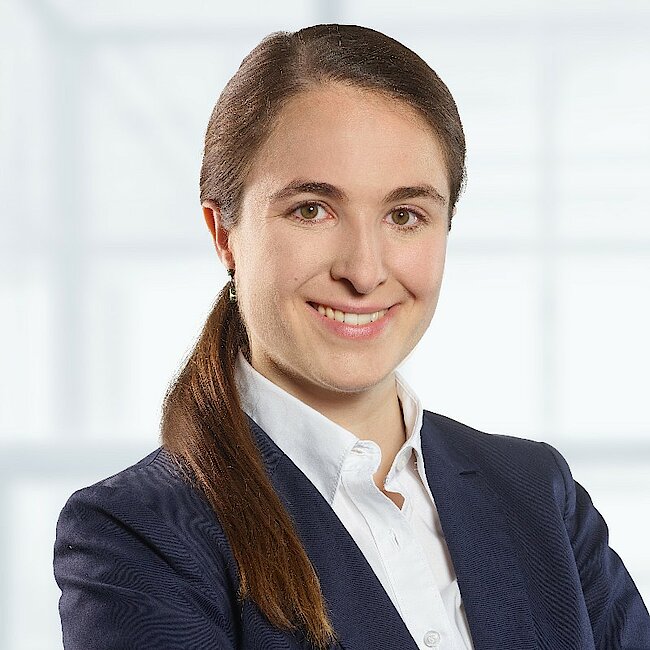
Sarah, if you weren't a materials scientist, then...
...I would be a marine biologist or a veterinarian. I went to a bilingual school. I liked maths, arithmetic and fiddling. At the same time, I liked languages. And I knew I wanted to explore, learn and understand something. I wanted to travel to places where there are animals that don't exist anywhere else, to take care of their well-being and do good with it.
How did you then find your way into materials science?
It was a lot of coincidences. Even at school, I was interested in all the natural sciences. I wanted to do all these subjects together. I became aware of materials science through a campaign for schoolgirls in the Saarland. During this two-week school camp at the university, the various departments presented their research with lectures and laboratory tours. Looking at structures from nature, and learning to understand and reproduce butterfly wings, for example - the lecture on materials science had me hooked. Here I had and still find all my interests. Even the languages I was interested in as a schoolgirl accompany me today when I go to international conferences and meetings.
Besides the natural sciences and languages, does the desire to "do good" come up in your work?
Yes, I have developed very strongly in the direction of application-oriented research. The goal of application-oriented research, and thus also mine, is to solve real problems in society. In our latest research project SmartPigHome at the Fraunhofer IZFP, for example, we are developing a sensor system for farm animal husbandry. Our goal is to detect the mood of pigs in stalls. Sounds absurd, but it has far-reaching significance for animal welfare. Pigs are highly intelligent animals. Despite compliance with the legal regulations on livestock husbandry, the animals get bored in holding pens. With a sensor system installed in the pens, we want to find out how and when the pigs feel unwell and change their behaviour.
You have been a DGM member for 12 years and are loyal to materials science. Who or what has shaped you professionally during this time?
What has shaped me in my professional and private life have been the people. They have awakened my interest, set me on my way, strengthened my back, and perhaps sometimes also pushed me out of my comfort zone. When I think back to the school camp at the university, it was the lecture on materials science research on the one hand, but also the enthusiasm of the researchers that motivated me. That is important to me as a person and also in my position as head of the department: to arouse interest, to inspire, and encourage people to think for themselves. Sharing knowledge and experience is incredibly valuable.
What approach do you take in scientific practice and what are the challenges for the scientific community, especially in materials science?
I was aware very early on that, for me, science is not the achievement of individuals, but is created in a team. Collaborative work, using synergies, and exchanging experience and information are fundamental for me to advance a project. With my personal values, I would like to shape the professional framework to give each individual in my team the opportunity to contribute to projects as a person with ideas and personality.
The science system is too standardised to leave room for creativity and the diversity of scientific personalities that is needed to advance science. Diversity is needed at all levels. We must not exclude any research personalities just because they break new ground and do not fit into the current pigeonholes of science indicators.
On 14 February 2023, the DGM, under the leadership of Prof. Dr Zimmermann, organised a "New Year's Brunch" for women under the heading "Female Role Models". Women in science - what is your opinion on this?
Role models are needed to give impetus to one's own professional career. I would want to make less of a distinction between male and female role models here. It is important to promote and exchange experiences about the academic career. We talk far too little and not open enough about how diverse career paths are and how many opportunities one has to shape them. Perceived "failures" can mean a lucky break in retrospect. I have often been told that the stages of my academic career seem planned. That is partly true. But there were and are also so many great opportunities and possibilities for personal growth that arise from coincidences. You can really grow and learn incredibly if you seize opportunities when they arise.
Thank you, Sarah, for the open and honest interview.
![[Translate to English:]](/fileadmin/_processed_/f/0/csm_logodgm-4_b2722eeace.png)
![[Translate to English:]](/fileadmin/user_upload/logodgm-4.png)